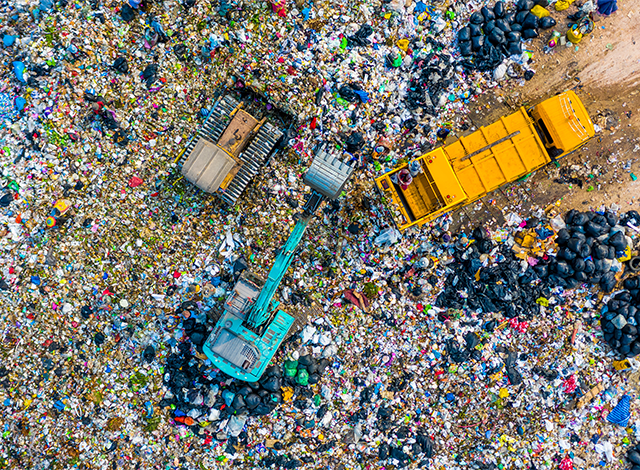LAURIE WEIR
We live in a beautiful country. We hold doors. We shovel our neighbours’ driveways of snow. We say sorry when someone else steps on our foot.
But when it comes to garbage, we’re acting like no one taught us better.
We chuck our crap out the car window, toss non-recyclables in the blue bin, and expect the grass to grow over it. Out of sight, out of mind. Someone else will deal with it. Some mythical “waste management” fairy with a high-vis vest and a magic truck.
In eastern Ontario and beyond, the landfills are filling fast. The province says Ontario will run out of landfill space in the next 20 years. Some regions will hit the wall even sooner. In Moose Creek, where our garbage is currently trucked, will be full in 20 years. What happens then?
The Moose Creek landfill, officially known as the Eastern Ontario Waste Handling Facility (EOWHF), is nearing its approved capacity. Operated by GFL Environmental, the site receives waste from across the region, including Smiths Falls. Its current fill limit of 11.6 million cubic metres is expected to be reached by late 2025. To extend the landfill’s lifespan, GFL has secured provincial approval for a major expansion, adding 15.1 million cubic metres of capacity. This is projected to keep the site operational until 2045. The facility also features a landfill gas-to-energy plant that generates up to four megawatts of electricity, enough to power roughly 4,000 homes, by capturing methane produced on-site. While the expansion buys time, officials warn it does not solve the larger issue of unsustainable waste production in Ontario.
Smiths Falls council just spoke about a contract extension with Glenview Iron and Metal to try to manage rising waste collection costs and buy more time. It will cost the town an extra $160,000 in 2026, and that’s just to maintain the system.
Meanwhile, the province is rolling out a new Extended Producer Responsibility model. It’s meant to improve recycling, but it’s created confusion. CAO Malcolm Morris says we’ll now have two different trucks driving down the same street to pick up the same types of material. He called it a step backward.
The deeper problem isn’t trucks or contracts. It’s our behaviour.
Here’s a good one. According to the Conference Board of Canada produces more garbage per person than any other developed country. Statistics show that only a third of what we toss gets diverted. The rest gets buried.
Other countries do it differently. Germany recycles two-thirds of its municipal waste. Sweden converts nearly half into energy. South Korea uses volume-based garbage bags and smart bins that track food waste. Japan asks residents to sort garbage into dozens of categories, and they actually do it.
Canada isn’t just falling behind. We’re dead last. Not even a bronze medal in the garbage Olympics.
Here, we just keep buying more. More plastic. More stuff we don’t need. Maybe it’s time to talk about how we treat garbage as a utility. It’s something we all pay into, and it’s something that needs better rules. It’s not up to the municipalities to fix alone … it has to start with the consumer. That’s you and me, boss.
I do want to give a big shout-out though, to an organization that deserves a gold medal. The Rideau Environmental Action League (REAL) is diverting 29 tonnes of E-waste a year; 70 per cent of which is from residents in town. In dollar figures, that about $4,600 that the town doesn’t have to pay in tipping fees.
Landfills don’t make garbage disappear. They just conceal it for a while.
And we’re running out of places to hide.



